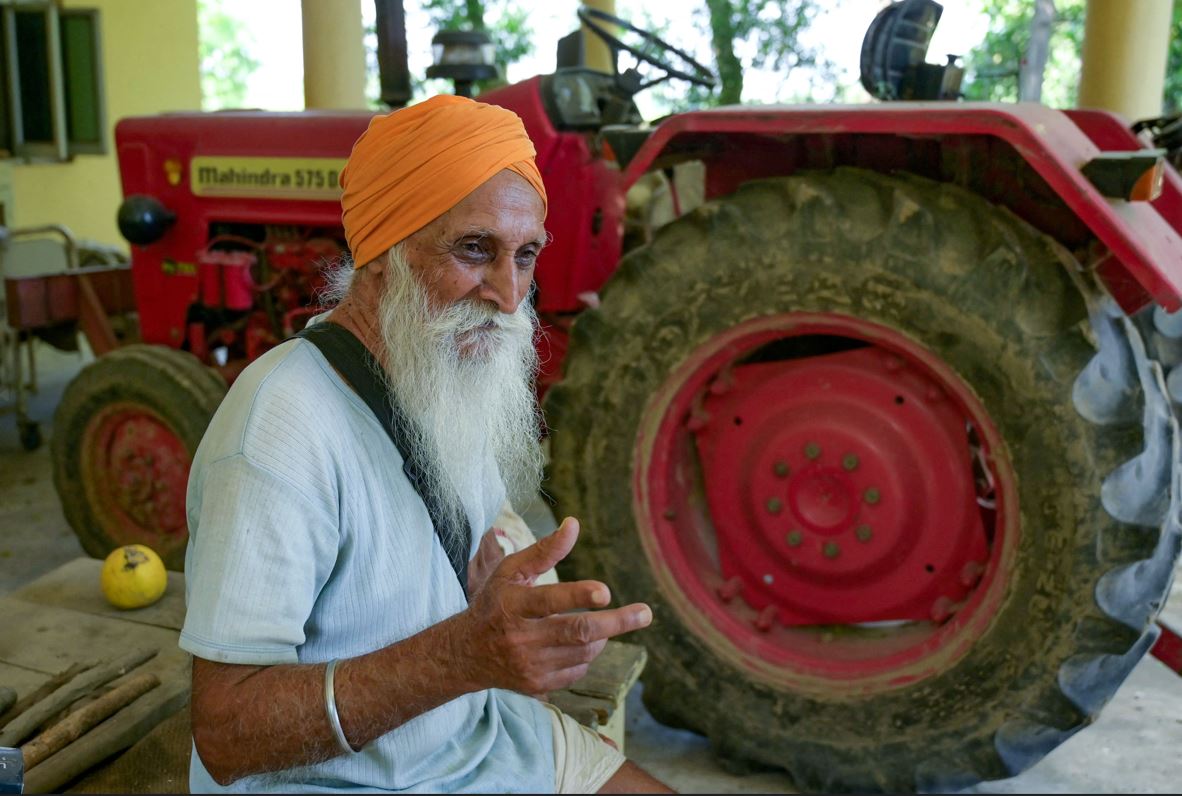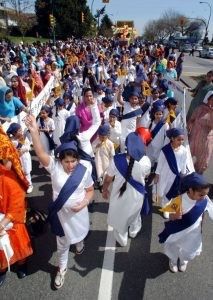- Sunday, April 28, 2024
Sikhs make up just two per cent of India’s 1.4 billion people, but they are a majority in Punjab, a state of 30 million where their religion was born 500 years ago

By: Eastern Eye
A BITTER row between India and Canada over the murder of a Sikh separatist is being felt in Punjab, where some Sikhs fear both a backlash from India’s government and a threat to their prospects for a better life in North America.
Hardeep Singh Nijjar, a plumber who left the north Indian state around 25 years ago and became a Canadian citizen, was shot dead in June outside a temple in a Vancouver suburb where he was a separatist leader among the many Sikhs living there.
Canadian prime minister Justin Trudeau said last week Ottawa had “credible allegations” that Indian government agents may be linked to the killing.
India, which labelled Nijjar a “terrorist” in 2020, angrily rejected the allegation as “absurd”, expelled the chief of Canadian intelligence in India, issued travel warnings, stopped visa issuance to Canadians and downsized Canada’s diplomatic presence in India.
Sikhs make up just two per cent of India’s 1.4 billion people, but they are a majority in Punjab, a state of 30 million where their religion was born 500 years ago. Outside of Punjab, the greatest number of Sikhs live in Canada, the site of many protests that have irked India.
An insurgency seeking a Sikh homeland of Khalistan, which killed tens of thousands in the 1980s and ‘90s, was crushed by India, but embers from the flame of the independence drive still glow.
In the village of Bharsinghpura, there are few memories of Nijjar, but his uncle, Himmat Singh Nijjar, 79, said locals “think it was very brave of Trudeau” to accuse prime minister Narendra Modi’s government of potential involvement in the killing. “For the sake of one ordinary person, he did not need to take such a huge risk on his government,” the uncle told Reuters, sitting on a wooden bench by a tractor in his farmhouse, surrounded by lush paddy fields and banana trees.
Still, though, the elder Nijjar said he is worried about deteriorating diplomatic relations with Canada and declining economic prospects in Punjab.
The once-prosperous breadbasket of India, Punjab has been overtaken by states that focused on manufacturing, services and technology in the last two decades.
“Now every family wants to send its sons and daughters to Canada as farming here is not lucrative, said the elder Nijjar.
India is the largest source for international students in Canada, their numbers jumping 47 per cent last year to 320,000.
“We now fear whether Canada will give student visas or if the Indian government will create some hurdles,” said undergraduate Gursimran Singh, 19, who wants to go to Canada.
He was speaking at the holiest of Sikh shrines, the Golden Temple in Amritsar, where many students go to pray for, or give thanks for, for student visas.

The temple became a flashpoint for Hindu-Sikh tension when then prime minister Indira Gandhi allowed it to be stormed in 1984 to flush out Sikh separatists, angering Sikhs around the world. Her Sikh bodyguards assassinated her soon afterwards.
Ties between Sikh groups in Punjab and prime minister Modi’s Bharatiya Janata Party (BJP) government have been strained since Sikh farmers led year-long protests against farm deregulation in 2020 and blocked the capital, forcing Modi to withdraw the measure in a rare political defeat for him.
Modi’s government has created “an atmosphere of fear”, especially for young people, alleged Sandeep Singh, 31, from Nijjar’s village. “If we are doing a protest, parents wouldn’t like their child to participate because they are afraid their children can meet the same fate” as Nijjar in Canada, he said.
Kanwar Pal, political affairs secretary for the radical separatist Dal Khalsa group, said, “Whosoever fights for Khalistan fights for right to self-determination, rights for plebiscite in Punjab. India perceived those Sikhs as their enemies and they target them.”
A BJP spokesperson declined to comment on the accusations.
Senior BJP leaders have said there was no wave of support in Punjab for independence and that any such demands were a threat to India. At the same time, the party says no one has done as much for the Sikhs as Modi. (Reuters)